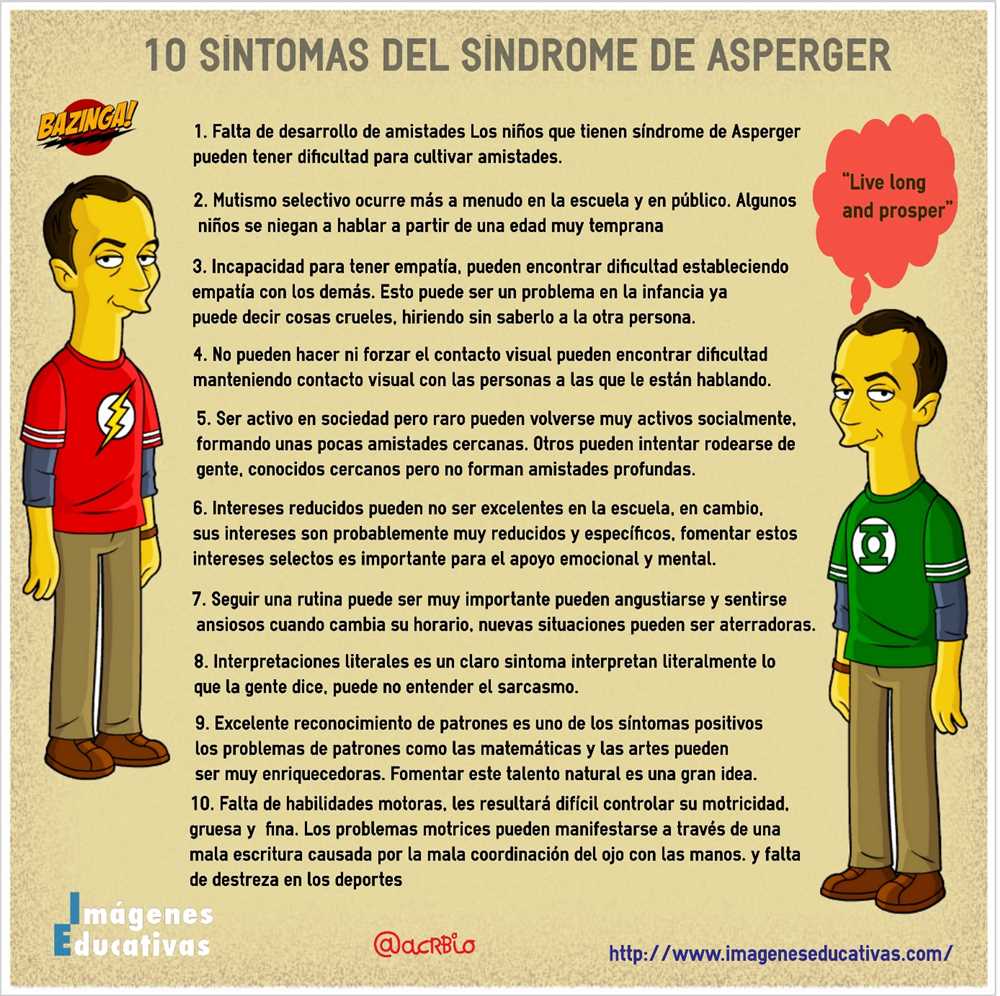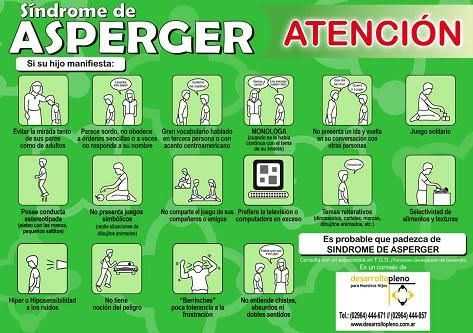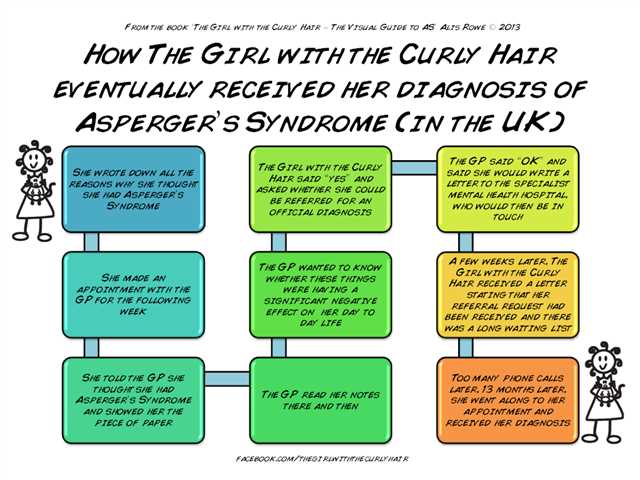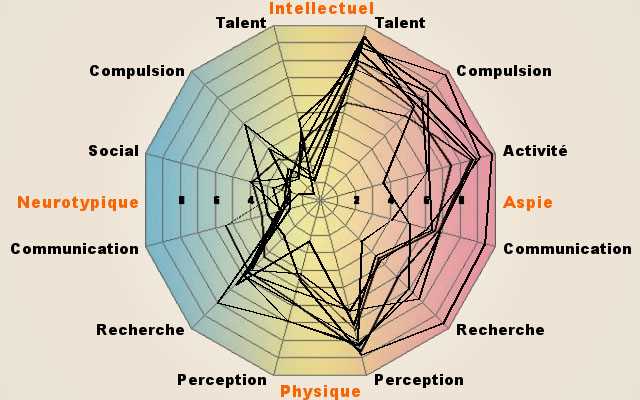
Asperger Syndrome is a neurodevelopmental disorder that affects social interaction and communication skills. While it is typically diagnosed in childhood, many individuals with Asperger’s may go undiagnosed until adulthood. This can lead to various challenges in personal relationships, education, and employment. To address this, there are specific tests designed to assess adults for Asperger Syndrome.
The Asperger Syndrome test for adults involves a comprehensive evaluation of an individual’s behavior, speech patterns, and cognitive abilities. Professionals, such as psychologists and psychiatrists, use standardized questionnaires and interviews to gather information and make an accurate diagnosis. These assessments often explore the individual’s social skills, repetitive behaviors, sensory sensitivities, and overall functioning in different settings.
Diagnosing Asperger Syndrome in adulthood can provide individuals with a better understanding of their own strengths and weaknesses, as well as the challenges they may face in certain areas of life. It can also lead to appropriate support and interventions, such as therapy and accommodations, which can greatly enhance an individual’s quality of life.
Understanding Asperger’s Syndrome: What is it?
Asperger’s Syndrome, also known as Asperger’s Disorder, is a developmental disorder that falls under the umbrella of autism spectrum disorders (ASD). It was named after the Austrian pediatrician Hans Asperger, who first identified and described the condition in 1944. Asperger’s Syndrome is characterized by difficulties in social interaction and nonverbal communication, as well as restricted and repetitive patterns of behavior and interests.
Individuals with Asperger’s Syndrome often have average or above-average intelligence and may exhibit exceptional skills or talents in specific areas. However, they may struggle with social interactions, finding it challenging to understand social cues, engage in reciprocal conversations, and make and maintain friendships. They may have difficulty interpreting facial expressions, body language, and tone of voice, which can lead to misunderstandings and socially awkward situations. Additionally, individuals with Asperger’s Syndrome may have intense interests and engage in repetitive behaviors or routines.
Key Characteristics of Asperger’s Syndrome:
- Difficulty with social interactions and nonverbal communication.
- Restricted and repetitive patterns of behavior and interests.
- Average or above-average intelligence.
- Exceptional skills or talents in specific areas.
- Challenges with understanding social cues and making friends.
- Trouble interpreting facial expressions, body language, and tone of voice.
- Intense interests and engaging in repetitive behaviors or routines.
Diagnosing Asperger’s Syndrome typically involves a comprehensive evaluation by a team of professionals, including psychologists, speech therapists, and occupational therapists. While there is no cure for Asperger’s Syndrome, early intervention and appropriate support can significantly improve an individual’s quality of life and help them develop strategies to navigate social situations and manage challenges associated with the condition.
Overview of Asperger’s Syndrome
Asperger’s Syndrome is a neurodevelopmental disorder that is characterized by significant difficulties in social interaction and nonverbal communication skills, as well as restricted and repetitive patterns of behavior and interests.
Individuals with Asperger’s Syndrome often have intense interests in specific subjects and may possess extensive knowledge on those topics. They may struggle with understanding and interpreting social cues, making it challenging to establish and maintain relationships. Additionally, they may have difficulty with empathizing with others and may exhibit a lack of understanding of others’ perspectives.
Common signs and symptoms of Asperger’s Syndrome can include difficulties with making eye contact, understanding sarcasm or humor, engaging in reciprocal conversations, and interpreting facial expressions and body language. They may also have a strong preference for routines and may become upset or resistant to change. Individuals with Asperger’s Syndrome may also have sensory sensitivities, making certain sounds, sights, or textures overwhelming or uncomfortable.
It is important to note that individuals with Asperger’s Syndrome vary widely in their abilities, strengths, and challenges. Some individuals may have exceptional skills in certain areas, such as mathematics or music, while struggling with other areas that require social or emotional understanding.
Early intervention and appropriate support can greatly benefit individuals with Asperger’s Syndrome in managing their challenges and improving their quality of life. With understanding, acceptance, and accommodations, individuals with Asperger’s Syndrome can thrive and contribute to society in meaningful ways.
Characteristics and Symptoms of Asperger’s Syndrome

Asperger’s syndrome is a neurodevelopmental disorder that falls on the autism spectrum. It is characterized by difficulties in social interaction, repetitive behavior patterns, and limited interests. Individuals with Asperger’s syndrome often have average or above-average intelligence levels, but struggle with social communication and understanding social cues.
One of the key characteristics of Asperger’s syndrome is a difficulty in understanding and interpreting social cues. This can make it challenging for individuals with Asperger’s to form and maintain relationships, as they may struggle to pick up on verbal and nonverbal signals from others. They may also have difficulty understanding abstract concepts and sarcasm, often taking things literally.
Repetitive behaviors and routines are another common symptom of Asperger’s syndrome. Individuals with Asperger’s may have specific rituals or routines that they need to follow, and may become upset or anxious if there are any changes to their routine. They may also have specific interests or hobbies that they are intensely passionate about and spend a significant amount of time focusing on.
Sensory sensitivities are also frequently observed in individuals with Asperger’s syndrome. They may be hypersensitive to certain sounds, lights, textures, or tastes, and may become overwhelmed or distressed by sensory stimuli that others may not even notice. These sensitivities can impact their daily functioning and may lead to difficulty in certain environments or situations.
It is important to note that each individual with Asperger’s syndrome is unique, and symptoms can vary widely from person to person. Some individuals may have mild symptoms and be able to function well in certain areas of life, while others may have more severe symptoms that significantly impact their daily functioning. However, with appropriate support, individuals with Asperger’s can learn coping strategies and develop skills to navigate social situations and thrive in their areas of interest.
Who can be affected by Asperger’s Syndrome?

Asperger’s Syndrome is a neurodevelopmental disorder that primarily affects adults. It is more commonly diagnosed in males than females, with a ratio of approximately 4:1. However, it is important to note that anyone, regardless of gender, can be affected by this condition.
People with Asperger’s Syndrome often exhibit difficulties in social interaction and communication, as well as restrictive patterns of behavior and interests. They may have trouble understanding social cues and may struggle with making and maintaining friendships. Additionally, they may have intense interests in specific subjects, often to the point of obsession.
Adults who may be affected by Asperger’s Syndrome include:
- Individuals who have always felt different or struggled with social interactions and relationships
- Those who have been previously misdiagnosed with other conditions such as social anxiety disorder or obsessive-compulsive disorder
- People who have difficulty with change or transitions and prefer predictable routines
- Individuals who have sensory sensitivities, such as being hypersensitive to certain sounds, textures, or lights
- Those who have exceptional skills or talents in specific areas, such as math, music, or art
It is important to remember that each person with Asperger’s Syndrome is unique and may experience these characteristics to varying degrees. If you suspect that you or someone you know may have Asperger’s Syndrome, it is recommended to seek a professional evaluation and diagnosis from a qualified healthcare provider.
Asperger’s Syndrome in Adults
Asperger’s Syndrome is a developmental disorder that is often diagnosed in childhood but can also be identified in adults. Individuals with Asperger’s may exhibit difficulties with social interactions, communication, and repetitive behaviors. Although it is a lifelong condition, many adults with Asperger’s are able to lead fulfilling and successful lives when provided with the right support and accommodations.
One of the key challenges for adults with Asperger’s is navigating social situations. They may struggle to understand social norms and cues, leading to difficulties forming and maintaining relationships. Social skills training can be beneficial in helping individuals with Asperger’s develop strategies for interacting with others and understanding social expectations.
Another characteristic of Asperger’s in adults is a heightened focus on specific interests or topics. While this intense focus can lead to expertise in certain areas, it can also make it challenging for individuals to engage in activities that do not align with their interests. Developing strategies for managing these intense interests and exploring other areas of interest can help individuals with Asperger’s broaden their horizons and expand their experiences.
In addition to social and interest-related challenges, adults with Asperger’s may also experience sensory sensitivities. They may be hypersensitive or hyposensitive to stimuli such as light, sound, touch, or taste. By identifying and understanding their specific sensory sensitivities, individuals with Asperger’s can work with professionals to develop strategies for managing and accommodating these sensitivities in their daily lives.
Support and Resources

- Therapy: Individuals with Asperger’s can benefit from Cognitive Behavioral Therapy (CBT) and other forms of therapy to address social skills deficits, manage anxiety, and develop coping strategies.
- Social Skills Training: Group or individual social skills training programs can provide individuals with Asperger’s with the tools and techniques necessary for successful social interactions.
- Workplace Support: Many adults with Asperger’s thrive in structured and supportive work environments. Employers can provide accommodations and modifications to help individuals with Asperger’s succeed in their careers.
- Support Groups: Connecting with others who have Asperger’s or similar experiences can provide valuable support, understanding, and guidance. Joining a support group can help adults with Asperger’s build a sense of community and share strategies for navigating daily challenges.
- Education and Advocacy: Continued education about Asperger’s and advocating for increased awareness and acceptance can help create a more inclusive society for individuals with Asperger’s.
Overall, with the right support and access to resources, adults with Asperger’s can lead fulfilling lives and contribute their unique strengths to society.
The Prevalence of Asperger’s Syndrome in the Adult Population
Asperger’s syndrome is a neurodevelopmental disorder characterized by difficulties in social interaction, communication, and repetitive patterns of behavior. While it is often diagnosed in childhood, there is a growing recognition of the prevalence of Asperger’s syndrome in the adult population.
Research suggests that the prevalence of Asperger’s syndrome in adults may be higher than previously estimated. One study conducted in the United States found that approximately 1 in 89 adults may have Asperger’s syndrome. Another study conducted in the United Kingdom estimated a prevalence rate of 1 in 100 adults. These findings indicate that Asperger’s syndrome may be more common in the adult population than previously believed.
The higher prevalence of Asperger’s syndrome in the adult population may be attributed to several factors. Firstly, diagnostic criteria and awareness of the condition have improved over the years, leading to more accurate identification and diagnosis in adulthood. Additionally, individuals with milder forms of the condition may have gone undiagnosed during childhood, only receiving a diagnosis later in life.
It is important to note that many adults with Asperger’s syndrome go undiagnosed or misdiagnosed, leading to difficulties in obtaining appropriate support and accessing necessary resources.
Recognizing the prevalence of Asperger’s syndrome in the adult population is crucial for identifying individuals who may benefit from intervention and support. By increasing awareness and understanding, healthcare professionals and society as a whole can better accommodate the unique needs and strengths of individuals with Asperger’s syndrome.
Signs and Indicators of Asperger’s Syndrome in Adults
Asperger’s syndrome, also known as Asperger’s disorder, is a neurodevelopmental condition that affects social interaction and communication abilities. While it is typically diagnosed in childhood, many individuals may go undiagnosed until adulthood. It is important to recognize the signs and indicators of Asperger’s syndrome in adults to provide appropriate support and understanding.
Social Difficulties: Adults with Asperger’s syndrome may struggle with social interactions and have difficulty understanding social cues. They may have difficulty making and maintaining friendships, have a limited understanding of nonverbal communication, and struggle with small talk. They may prefer to be alone or engage in solitary activities rather than engaging in social situations.
Rigid and Obsessive Behavior: Adults with Asperger’s syndrome may exhibit rigid and obsessive behaviors. They may have specific routines or rituals that they adhere to strictly and become anxious or upset when these routines are disrupted. They may also have intense interests or hobbies that they devote a lot of time and attention to.
Difficulties with Empathy: Individuals with Asperger’s syndrome may have difficulty understanding and expressing empathy. They may struggle to recognize and respond to the emotions of others, leading to perceived insensitivity or detachment. This difficulty with empathy can impact their relationships and interactions with others.
Sensory Sensitivities: Many adults with Asperger’s syndrome have sensory sensitivities or sensory processing difficulties. They may be hypersensitive or hyposensitive to certain stimuli such as noise, light, touch, or taste. These sensory sensitivities can impact their daily lives and may lead to avoidance or difficulty in certain environments.
Language and Communication Differences: Adults with Asperger’s syndrome may have a unique way of communicating. They may have a formal or precise speaking style, speak in a monotone voice, or struggle with understanding and using non-literal language such as sarcasm or metaphors. They may also have difficulty initiating and maintaining conversations.
It is important to remember that everyone is unique, and not all individuals with Asperger’s syndrome will exhibit the same signs and indicators. If you or someone you know exhibits these signs, it may be helpful to seek a professional evaluation for a formal diagnosis and to access appropriate support and resources.